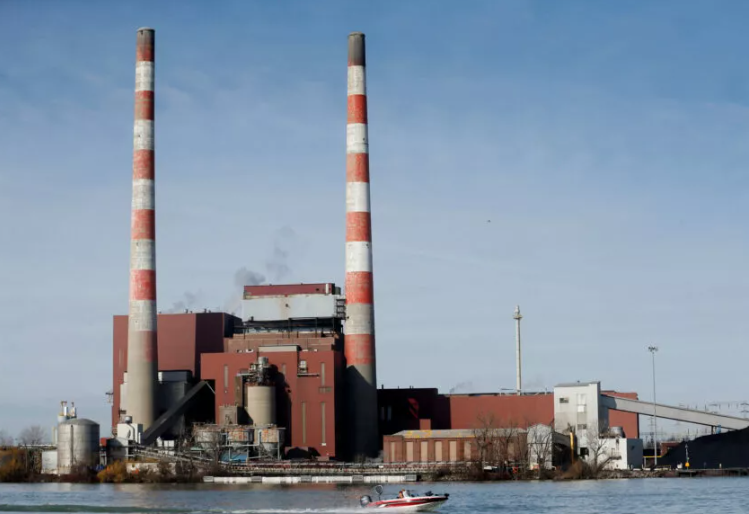Texas continues to cement its dominance as the nation’s energy powerhouse, as natural gas production in the Lone Star State surged to record highs this March, according to the latest data from the U.S. Energy Information Administration (EIA). The figures showcase Texas as not only a vital player in domestic energy security but also a leader in resisting the Biden administration’s overreach on fossil fuel restrictions.
In March 2025, Texas natural gas output hit an all-time high of over 32.6 billion cubic feet per day, marking a 4% increase from February and a staggering 9% rise year-over-year. The EIA’s Monthly Natural Gas Production Report confirmed that this is the largest volume ever recorded in a single month for the state.
This boom is a testament to Texas’ business-friendly environment and robust energy infrastructure. While blue states like California and New York tighten the noose on fossil fuels, Texas continues to lean into energy independence and free-market solutions. The Permian Basin, in particular, has emerged as a strategic engine of growth, helping to stabilize national supply and blunt the impact of international instability on energy prices.
According to the Texas Oil & Gas Association (TXOGA), the state’s production surge is not only fueling domestic needs but also bolstering the global market through liquefied natural gas (LNG) exports. TXOGA president Todd Staples noted that “Texas’ record-breaking performance is the result of sound policies, private sector innovation, and an unwavering commitment to energy development.”
Meanwhile, federal officials have struggled to reconcile their aggressive climate agenda with rising energy demands. The Biden administration has imposed burdensome EPA regulations and paused LNG export approvals in early 2024, which critics say threaten both economic stability and national security. Texas’ refusal to bend to federal pressure is increasingly seen as a model for states seeking to maintain control over their resources.
Analysts at The Center Square highlighted the significant impact of Texas’ production numbers on national output. In fact, the state alone accounted for nearly 30% of the total U.S. marketed natural gas production in March. “No other state comes close,” the report stated.
Despite White House efforts to pivot away from fossil fuels, the reality remains that natural gas is essential to modern life—powering homes, businesses, and industries. Texas leaders have embraced this fact, resisting what they see as politically motivated attacks on the energy sector.
Governor Greg Abbott has consistently voiced support for the oil and gas industry, calling it the backbone of the state economy. In a recent statement, Abbott reaffirmed his administration’s stance: “Texas will not yield to radical environmentalism that threatens our prosperity and energy freedom.”
The economic benefits of the gas boom are hard to ignore. The industry supports over 400,000 jobs across the state and contributes more than $20 billion annually in taxes and royalties, funding schools, roads, and emergency services. As inflation continues to plague American households, reliable energy development in Texas offers a lifeline to families and industries alike.
Conservatives view Texas’ success as proof that traditional energy sources remain not only viable but essential. With Europe and parts of the U.S. facing energy shortfalls due to premature green transitions, Texas stands in stark contrast—achieving both economic growth and energy reliability.
Local officials in energy-rich regions like Midland and Odessa have reported increased investments, employment, and infrastructure development. These communities, once hit hard by the COVID-era shutdowns and the Biden administration’s anti-oil rhetoric, are now rebounding with renewed strength.
It’s also worth noting that natural gas, often vilified by climate activists, is one of the cleanest fossil fuels available—offering a practical bridge between coal and future alternatives. Instead of demonizing this abundant resource, Texas policymakers have wisely embraced its strategic potential.
The Biden administration’s fixation on electrification and solar subsidies has led to grid instability in several blue states, yet Texas’ diversified energy strategy—including natural gas—has helped it weather storms both literal and political. While the federal government struggles with rolling blackouts and reliance on unstable foreign markets, Texas is charting its own path.
Many energy advocates argue that if Washington followed Texas’ lead, the country would be better prepared to handle future supply shocks, reduce dependence on adversarial nations, and bring down skyrocketing energy prices. The success of Texas proves that deregulation, not dependence on intermittent wind and solar, is the path toward real energy security.
Texans, for their part, are proud to lead the way. As one local energy executive put it, “We’re doing what needs to be done—keeping America powered, and free.”
As long as Texas stays the course, the rest of the country will benefit. The question remains: how long will Washington ignore the facts on the ground?





